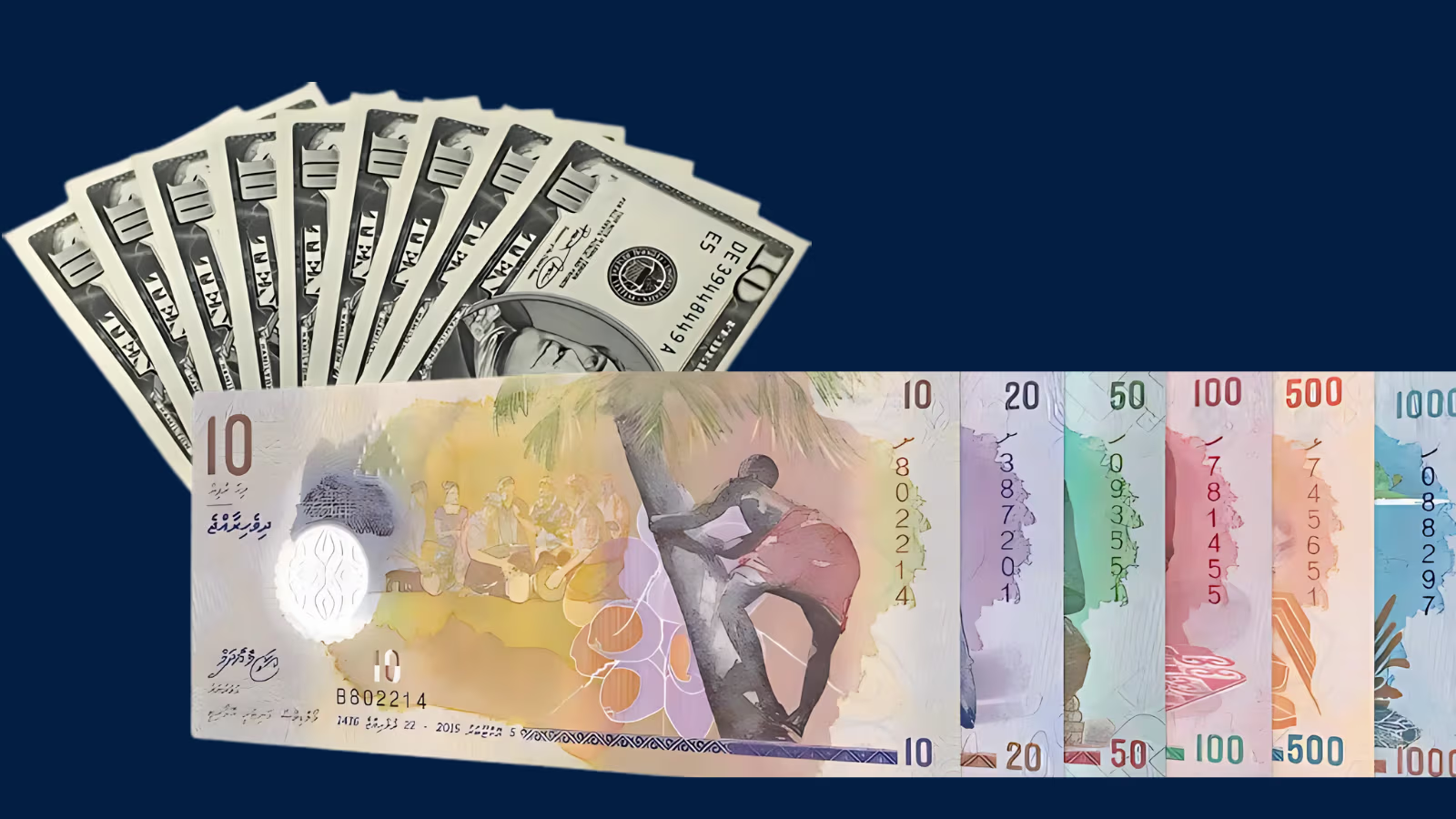In recent years, the Maldives has struggled with a persistent black market for US dollars, a situation worsened by economic challenges and foreign currency shortages. As of February 2025, significant developments have emerged in the nation’s efforts to address this issue.
In late 2024, the Maldivian government introduced stringent regulations requiring all foreign currency earnings from the tourism sector to be deposited into local banks. This policy was implemented to enhance the availability of foreign currency within official financial channels and reduce reliance on the black market. Non-compliance with these regulations could result in substantial fines, reinforcing the government’s commitment to stabilizing the foreign exchange landscape.
Tourism Minister Thorig Ibrahim, speaking at the Ahaa Forum on February 15, 2025, highlighted the positive impact of these measures. He noted that the government’s efforts are beginning to yield results, with a noticeable decline in black market dollar transactions. The minister emphasized the importance of continued collaboration between the government and industry stakeholders to ensure a regulated flow of foreign currency into Maldivian banks.
Despite these regulatory efforts, the black market for US dollars has remained active, with rates often diverging significantly from official exchange rates. In November 2024, reports indicated that black market rates had surged beyond MVR 19 per US dollar, with some transactions reaching as high as MVR 20. This surge was attributed to difficulties in sourcing dollars through formal channels, leading importers and businesses to turn to unofficial means. However, by early 2025, there were signs of stabilization. The official exchange rate, as determined by the Maldives Monetary Authority (MMA), remained steady, with the mid-point at 12.85 MVR per US dollar, permitted to fluctuate within a ±20% band. This stability in official rates, combined with increased regulatory oversight, contributed to a decline in black market rates. Social media reports from early February 2025 noted a decrease in black market dollar rates, suggesting that the government’s measures were having the intended effect.
The Maldives’ economy remains heavily reliant on tourism, making it susceptible to global economic fluctuations. In 2024, the nation faced significant economic challenges, including a decline in foreign exchange reserves from $589 million to $395 million, covering just over a month of essential imports. This decline prompted international credit rating agencies, such as Moody’s and Fitch, to downgrade the Maldives’ credit ratings, citing a heightened risk of default. In response, the government, led by President Mohamed Muizzu, has undertaken measures to restore economic stability. These include reducing subsidies, privatizing certain industries, and seeking financial support from major creditors like India and China. The government’s proactive stance aims to rebuild foreign exchange reserves, reduce public debt—which had reached 123% of GDP—and create a more resilient economic framework.
To increase US dollar availability for citizens and businesses, the Maldivian government has implemented several key measures aimed at alleviating the foreign currency shortage and stabilizing the economy. In November 2024, President Dr. Mohamed Muizzu announced initiatives to boost dollar circulation within the banking system. A key policy requires tourism establishments to exchange a portion of their foreign currency earnings—specifically, USD 500 per tourist—through local banks. This measure is designed to increase the availability of dollars for the general public and small and medium-sized enterprises (SMEs). Additionally, sectors beyond tourism that earn foreign currency above a certain threshold are now mandated to exchange their earnings locally, further enhancing dollar liquidity.
To directly benefit Maldivian citizens, the government has outlined plans to double the personal dollar allowance for travelers. Starting in the first quarter of 2026, the allowance for Maldivians departing from Velana International Airport will increase from USD 500 to USD 1,000. This adjustment aims to provide citizens with greater access to foreign currency for personal and travel-related expenses. Recognizing the financial challenges faced by Maldivian students studying overseas, the government decided in December 2023 to raise the monthly debit and credit card transaction limits from USD 750 to USD 1,200, effective February 1, 2024. This increase was intended to ease the financial burden on students by providing them with sufficient funds for their expenses abroad.
For local businesses, particularly those involved in importing goods, the government plans to enhance access to foreign currency. Starting in July 2025, there will be an increase in the proportion of dollars released to banks specifically for telegraphic transfers (TTs). This initiative aims to support Maldivian businesses by ensuring they have the necessary foreign currency to engage in international trade and procurement.
These measures reflect the government’s commitment to addressing the foreign currency shortage and improving dollar accessibility for its citizens. By implementing policies that enhance dollar circulation within the formal banking system and directly increasing allowances for individuals and businesses, the Maldives aims to create a more stable and resilient economic environment. While the black market for US dollars has been a longstanding issue in the Maldives, recent regulatory measures and economic reforms indicate a concerted effort to address the root causes. The decline in black market rates, coupled with stabilized official exchange rates, suggests progress. However, sustained success will depend on continuous collaboration between the government, financial institutions, and the private sector to ensure a transparent and robust foreign exchange system.



